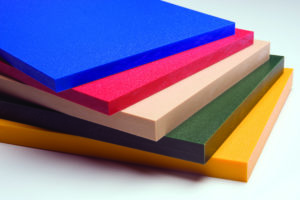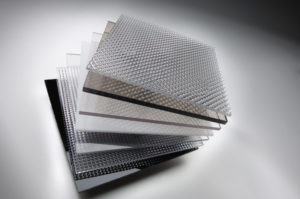Every type of plastic has its own unique qualities that make it well-suited for specific applications. An experienced plastics supplier can guide you to the options that are most useful given your industry and the particular requirements of each project. However, it still helps to have a basic understanding of your material options. Knowing the pros and cons of each material can help you narrow down choices for your team and make informed decisions when making selections for your own projects.

HDPE is one material almost every company that utilizes high-performance plastics should be aware of. This popular thermoplastic possesses a unique set of qualities that make it well-suited for a variety of applications. Although it is a versatile general-use plastic, HDPE is often most closely associated with industries and use cases where it may come into close contact with water or chemicals.
Here’s a guide to HDPE, including its attributes, applications, and tips for making the most of this powerful material.
Attributes of HDPE
HDPE, which stands for high-density polyethylene, is best known for its high impact strength, chemical resistance, and low moisture absorption. Though these are not the only qualities that make HDPE such a popular choice in the plastics industry, here’s a closer look at each of these standout material attributes.
The high density of HDPE allows it to hold up well in applications where impact strength is needed. It offers strength and rigidity for a wide variety of applications. It’s not quite as impact resistant as plastics used in security window applications, like polycarbonate and acrylic. However, it does provide some protection against damage from forcible entry or flying debris. It also offers decent tensile strength to stand up against stress and pressure. So users can enjoy multiple types of strength in one powerful material.
The density of HDPE also makes the material incredibly resistant to moisture absorption and a variety of chemical components. More specifically, this plastic displays high chemical resistance against several basic solvents, as well as various greases, waxes, and acids. This makes it easy to clean, sanitize, lubricate, and process with various chemical agents. And it provides a strong option for storing liquids without changing its chemical structure or physical properties at all.
In addition to these benefits, HDPE is a highly processable thermoplastic. It can be altered and customized using a variety of methods, including cutting, welding, and routing so that the exact shapes and sizes needed for specific applications can be met. This often simplifies the plastic production and packaging process for users, while also cutting costs and improving team efficiency.
Applications
HDPE is an excellent general-use thermoplastic that has potential applications across a huge array of industries. In fact, it is popular as a material choice in everything from mass transit and armored vehicle systems to construction and signage. Some of the most powerful and unique applications include the ability to be used in chemical processing equipment, water delivery systems, and heavy machinery used in manufacturing and industrial applications. Here’s a closer look at each of these use cases.
Due to its chemical resistance, HDPE provides an ideal solution for various chemical containers. More specifically, it is often used in the production of bottles that house laundry, cleaning solutions, shampoo, and automotive oil. However, it can also be used in the production of larger chemical containers used at industrial facilities. Though HDPE comes in various finishes, it is actually stronger and more chemical resistant when the material is mixed with an opaque pigment. This means HDPE bottles in various colors tend to be the most chemical resistant.
The chemical and moisture resistance of HDPE also makes it an ideal solution for fluid distribution systems. Specifically, it is often used in the production of pipes in water treatment facilities and geothermal systems, since water can pass through without absorbing into the pipe lining or changing the chemical makeup of the material.
HDPE is also incredibly common in the production of heavy equipment and manufacturing machinery due to its impact resistance and tensile strength. It can be used to form pipes, containers, or delivery systems. Its strength and durability allow it to hold up incredibly well in these environments since it’s often exposed to other strong materials and/or water and solvents. In fact, since HDPE is a food-safe material, it can even be used in manufacturing or packaging facilities where food or beverages are processed.
Your Local HDPE Sheets Supplier
If you’re ready to reap the benefits of HDPE for the applications listed above or any other industry, it’s important to choose a supplier that has the capabilities to deliver HDPE to your exact specifications. In particular, custom-cut HDPE allows you to get the sheets, pipes, or raw materials in the specific sizes, shapes, and amounts that work for your projects.
For example, you may also require HDPE in various shapes or forms, depending on the specific needs of your project. For instance, a manufacturing facility may require HDPE sheets or rods for machinery applications, while water treatment or energy providers may require a tube shape for piping applications.
Polymershapes meets all these requirements for HDPE and more. We source products from leading-edge suppliers like Mitsubishi Chemical Advanced Materials. And they come in both standard and custom-cut sizes depending on the needs of your applications. We even provide extra value-added services like conversion and fabrication options at our local facilities, which provide best-in-class customer service and convenience. Visit our website to find your local branch and reach out for a quote to get started.


